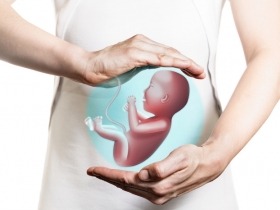7 Ways IVF Treatment Impacts Psychology
Are you considering undergoing an in vitro fertilization (IVF) treatment? Perhaps you have read a lot about the steps in the process, the success rates, and the possible outcomes, but have you thought about one of the lesser-known aspects of IVF - the emotional and psychological burden? This article will try to shed some light on this impact in order to prepare you for what you should expect.
IVF treatment often involves hormonal medications, frequent medical appointments, and the uncertainty of outcomes. Many individuals and couples experience stress, anxiety, and depression during this process. Therefore it is crucial to have a strong support system and consider counseling or therapy to help you cope with the emotional factors.
The psychological aspects of IVF treatment can be more considerable than you expect, and they can vary a lot. Here are some common psychological effects that you may experience during the IVF process:
Stress and Anxiety
The IVF journey can be filled with uncertainty, waiting periods, and multiple medical procedures, creating pressure and strain on your psyche. The strong desire to conceive and the emotional rollercoaster associated with each step of the treatment can take a toll on everyone involved.

Coping with Failure
As you may know, IVF cycles do not always result in a successful pregnancy, and experiencing failed attempts can be challenging. Each negative outcome can lead to disappointment, grief, and a sense of loss. Learning to cope with these setbacks and finding the strength to continue can be difficult but crucial.
Impact on Relationships
If you are in a relationship, you should realize that both partners must navigate the treatment's physical, emotional, and financial aspects. The pressure to conceive is equally felt by you and your partner and can lead to increased tension, conflicts, and changes in your intimacy. It's important to continue to communicate openly, seek support together, and consider couples counseling if needed.
Tough Decision-Making
During the IVF treatment, you may often need to make difficult and complex decisions, such as the number of embryos to transfer, whether to pursue additional treatments or procedures and how to handle the remaining embryos. These decisions may involve ethical, moral, and personal considerations and can be emotionally challenging.
Self-Identity and Self-Esteem
It is not uncommon for people dealing with infertility and needing assisted reproductive technologies to feel inadequate about themselves. The inability to conceive naturally can lead to feelings of low self-esteem, guilt, and a sense of loss of control over your body. It's vital to nurture self-compassion and seek support to maintain a positive self-image and look at life.
Social and Emotional Support
Having a strong support system is crucial during IVF treatment. Sometimes people may find it difficult to share their fertility struggles with friends, family, or colleagues due to fear of judgment or lack of understanding. If this is your case, try to look for comfort from infertility support groups, therapy, or online communities. Communication with others going through similar experiences can provide valuable emotional support and understanding.
Psychological Impact of Success
While a successful IVF outcome brings joy and relief, it can also trigger unexpected emotions. Some people may experience feelings of guilt or worry about the responsibilities of parenthood. The transition from infertility to IVF pregnancy or parenthood may require emotional adjustment and support.
It's important to prioritize your mental health and seek professional help during IVF treatment if needed. Fertility clinics often have resources available, such as counseling services or referrals to mental health professionals experienced in working with individuals and couples dealing with infertility.
Source:
- Malina, A., & Pooley, J. A. (2017). Psychological consequences of IVF fertilization – Review of research. Annals of Agricultural and Environmental Medicine, 24(4), 554–558. https://doi.org/10.5604/12321966.1232085
- Seok Kee, B., Jung, B.J.& Lee, S.H. A Study on Psychological Strain in IVF Patients. J Assist Reprod Genet 17, 445–448 (2000). https://doi.org/10.1023/A:1009417302758






